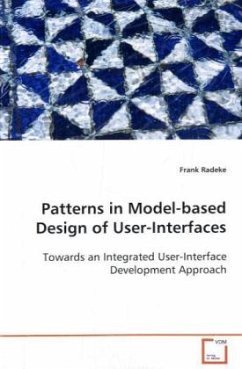The development of user interfaces is influenced by
various challenges in recent years. These are
foremost caused by an increasing complexity of the
underlying applications, the use of applications on
different devices and by different types of users and
by frequently changing application environments.
Model-based user interface development approaches
have been shown to be suitable to face these
challenges. However, creating, transforming and
linking the various included models are complex
tasks. Employing patterns can reduce complexity by
providing an advanced concept of reuse. In this book
a general approach of applying patterns in
model-based design of user-interfaces is suggested.
The components of the approach and the underlying
steps are explained in detail. An example case is
used to illustrate the suggested methodology. Finally
a set of concrete patterns that can be employed in
this context is introduced.
various challenges in recent years. These are
foremost caused by an increasing complexity of the
underlying applications, the use of applications on
different devices and by different types of users and
by frequently changing application environments.
Model-based user interface development approaches
have been shown to be suitable to face these
challenges. However, creating, transforming and
linking the various included models are complex
tasks. Employing patterns can reduce complexity by
providing an advanced concept of reuse. In this book
a general approach of applying patterns in
model-based design of user-interfaces is suggested.
The components of the approach and the underlying
steps are explained in detail. An example case is
used to illustrate the suggested methodology. Finally
a set of concrete patterns that can be employed in
this context is introduced.








